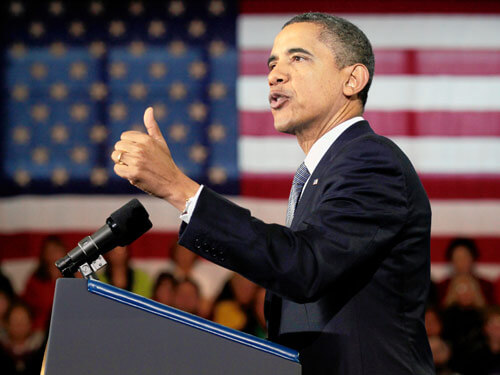It’s no big-time brain teaser to come up with America’s worst foreign policy fiasco of the last 40 years. The George W. Bush administration’s decision to invade Iraq is hands-down winner. That elaborate sales pitch Bush and his posse of blood-thirsty neo-imperialists concocted to justify strong-armed action against Saddam, not just for the American public but the world, will probably stand for years as one of the biggest con jobs ever used as an excuse for war. While, in the aftermath of 9/11, many swallowed the “weapons of mass destruction” load of bilge served up by the Bushmen, a whole lot of us, on U.S. soil and elsewhere, did not. Massive demonstrations here and abroad made this abundantly clear including, notably, the people of Britain who arranged a swift hero-to-goat transition for Tony Blair because of his opting to become the foremost Bush toady.
In time, the fallacy of there being valid rationale for the U.S. invasion and occupation became obvious, even to many who earlier had gullibly gone along with the administration’s claptrap. Touting yourself as unflappably convinced of how right was going to war with Saddam’s Iraq came to be no longer the badge of honor some once thought. And it was the province of arrogant warmongers like Dick Cheney, Donald Rumsfeld and company to stubbornly persist with the WMD red herring or some other twisted logic purporting to justify the invasion.
Nothing more graphically demonstrated how clueless the war planners were in their perceived understanding of what the operation entailed than their badly misguided impression of how universally accepted by Iraqis the occupying force would be, and how quickly the task of reconfiguring Iraq to America’s design could be completed. We have always maintained, in this space, that there is perhaps a certain debt the world owes to the defiant Iraqi insurgency that proved those U.S. assumptions groundless. Who knows what other conquest fantasies might have been indulged by these gung-ho champions of U.S. hegemony, had the Iraq misadventure not been stymied the way it was?
All of which, one would think, would preclude mention of further prolongation of combat in Iraq involving U.S troops by authors of the colossal mess the Bush administration’s Iraq policy turned out to be. Not a chance. Iraq is back in the news with the ramped-up sectarian violence that was always the bête noir poised to undo the best of intentions for making Iraq a seamless whole. And wouldn’t you know that some of the very trigger-happy interventionists, who believed they had an Iraq solution all neatly sketched, have been sounding off with barefaced temerity about, once again, Iraq’s optimum way forward. Chris Matthews had it exactly right. He recently commented on his “Hardball” program on MSNBC that there were some characters from that Bush era bunch of policy makers and supporters who should henceforth “cease and desist” from ever again uttering the word “Iraq.”
A battle cry has sprung up from the element we typically associate with hawkish tactics, that President Obama was premature in setting the timetable he did for withdrawing combat troops from Iraq. Never mind that the president, in so doing, was keeping his word as a candidate for the presidency and, more importantly, abiding by the clear dictates of the American public. Stung by the more than 4,000 military deaths and many more wounded in Iraq, in a war they saw or came to see as unnecessary, Americans’ tolerance for the deployment of combat troops anyplace is understandably not at all high. The “Let’s go get ‘em” take coming from the likes of Senator John McCain runs counter to the prevailing currents in the country today. Given a choice of having America militarily disengaged from Iraq at the earliest opportunity or having troops maintain an indefinite presence, there’s not much question where a solid majority of national opinion would be.
Look, the U.S. unwisely injected itself into a situation in Iraq from which extrication was more or less guaranteed to be a dicey proposition. It comes with the territory when there are these ill-advised attempts to impose the trappings of westernized social order on cultures radically different from the West. The miscalculation has too often tended to be made in the West that a Saddam or a Qaddafi isn’t, in the final analysis, perhaps best suited for keeping the lid on the ongoing factional strife roiling their domain. Which is not to suggest, at this time of serious terrorism threat, that there be any letup in the vigilance the situation demands. Ensuring that there were all elements in place for containing Saddam, were he inclined to go for some destabilizing power play somewhere beyond his borders, would have been far more intelligent, by way of response, than what has ensued.
Iraq’s situation today boasts, thanks to the U.S. commitment to establish a functioning democracy, Prime Minister Nuri al-Maliki hurting, rather than helping, any chances for sectarian unity. The signals from rampaging Sunni Islamists portend a hellish disorder that may very well necessitate American military action. Hardly would this be a solution, though. Contrary to what some Obama critics now contend, that boat sailed back in ’03, when the misuse of military might was directed toward a problem that didn’t exist.























